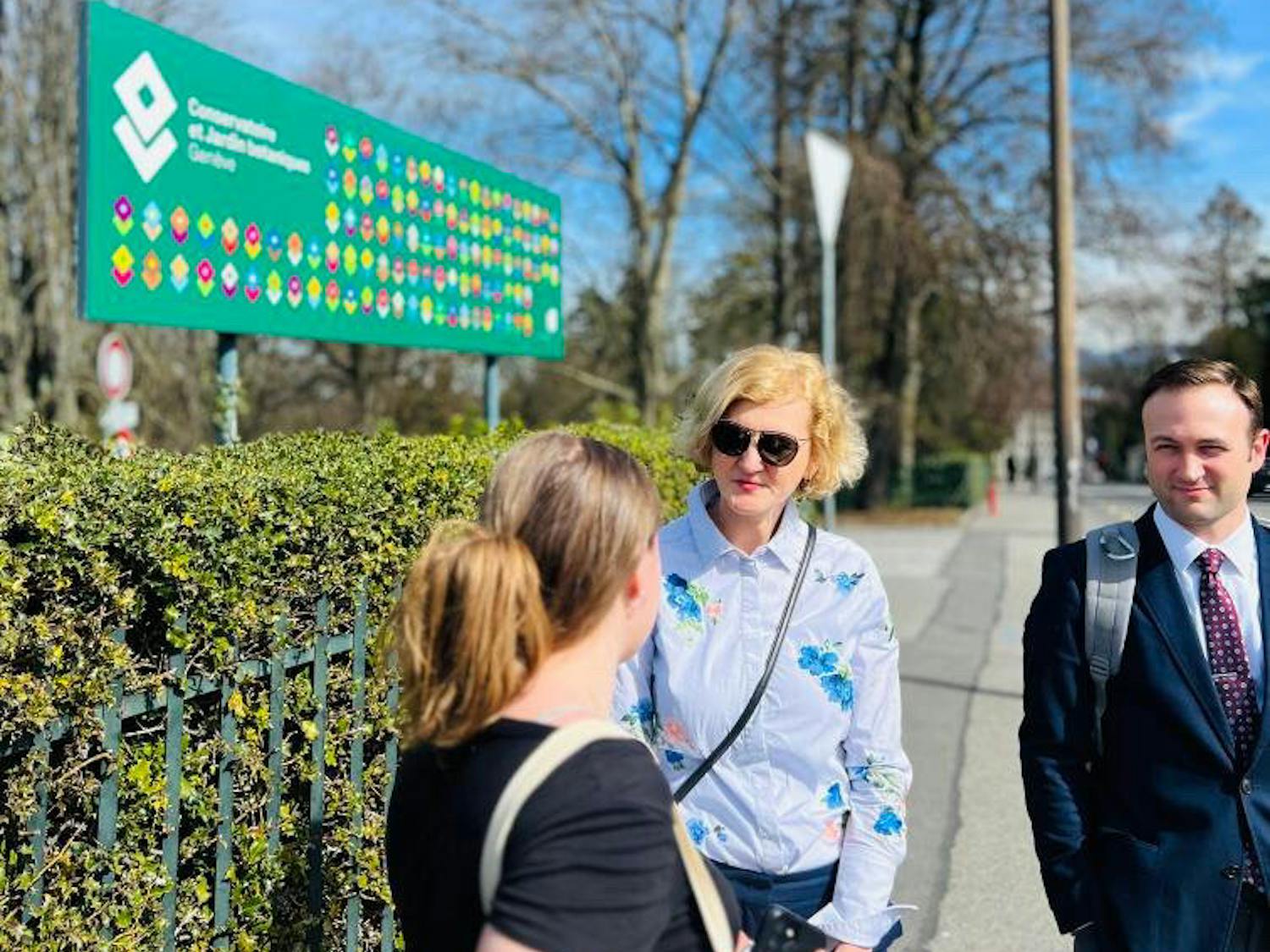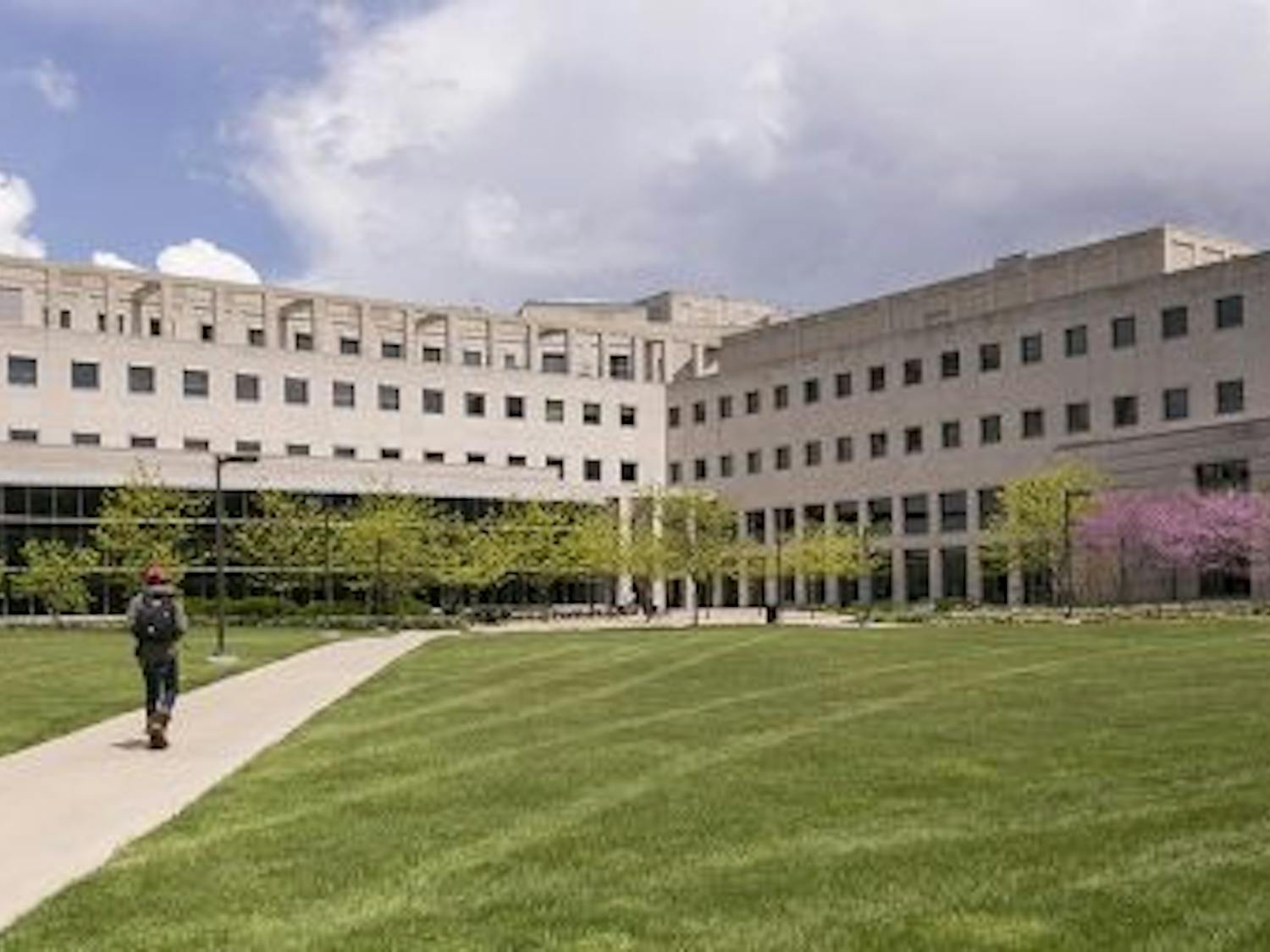A'Lelia Bundles, successful journalist, NBC producer and great-great granddaughter of Madam C.J. Walker was born in Chicago, but Bundles grew up in Indianapolis and its culture. She wants Indianapolis residents to know how the once vibrant Black neighborhood on Indiana Avenue was destroyed in pursuit of so-called progress.
Bundles began speaking about this issue in a discussion series called “In Conversation with A'Lelia Bundles,” which explores and analyzes the issues that affect Black culture. A recent installment of the series took place at IUPUI’s Hine Hall on February 15, 2023.
The event’s panelists included Justin Moore, an officer for the Humanities in Place program at the Andrew W. Mellon Foundation, Lourenzo Giple, a Deputy Director of Planning, Preservation and Urban Design for the city of Indianapolis and Olon Dotson, chair of the Department of Architecture at Ball State University.
Prior to the event, she recounted her personal experiences with Indiana Avenue to WISH-TV.
“Indiana Avenue is in my blood and my bones,” Bundles said. “My mother worked at the Walker building. I remember walking up the stairs and going up the elevator when she was going to her office.”
During the discussion, Bundles and the panelists focused on displacement, development and heritage for Black life, businesses and entertainment spaces, including Indiana Avenue. The neighborhood homes and businesses there were moved out to make room for the I-65 interstate and buildings, such as the IUPUI campus.
Now, with plans of construction taking place in the downtown area, Bundles brought up questions for how these plans can go forward while still respecting the city’s Black culture and sustainability to prevent displacement.
“How do the various stakeholders collaborate so that heritage is acknowledged and respected?” Bundles asked. “How do we work together to create a model for enlightenment for enlightened development that is economically sustainable, culturally equitable and attractive to longtime residents as well as tourists and people who work and live downtown?”
At the panel, Dotson connected examples of displacement in other cities with what happened, and is happening, in Indianapolis. He also referred to when the wealthy district in Tulsa, Oklahoma, also known as “The Black Wall Street,” was destroyed by violent white people in 1921.
“My family lived in that situation when the entire 36 square block community was burned down to the ground, and then they came back and built an interstate right through the middle of Black Wall Street,” Dotson said.
Bundles also revealed with WISH-TV that with the discussions, however, there’s an opportunity to rethink the configuration of I-65 in hopes of it becoming more conscious of the historic neighborhood.
At the end of the discussion, Bundles gave her closing statements encouraging people to continue fighting for the cause, “I want you all to be foot soldiers and make sure we do not have these same mistakes” Bundles said. “I'll be gone in 50 years, but some of you will still be here.”
Daniel Guevara is a first-year student studying Journalism at the School of Liberal Arts. He is a campus writer for The Campus Citizen.





